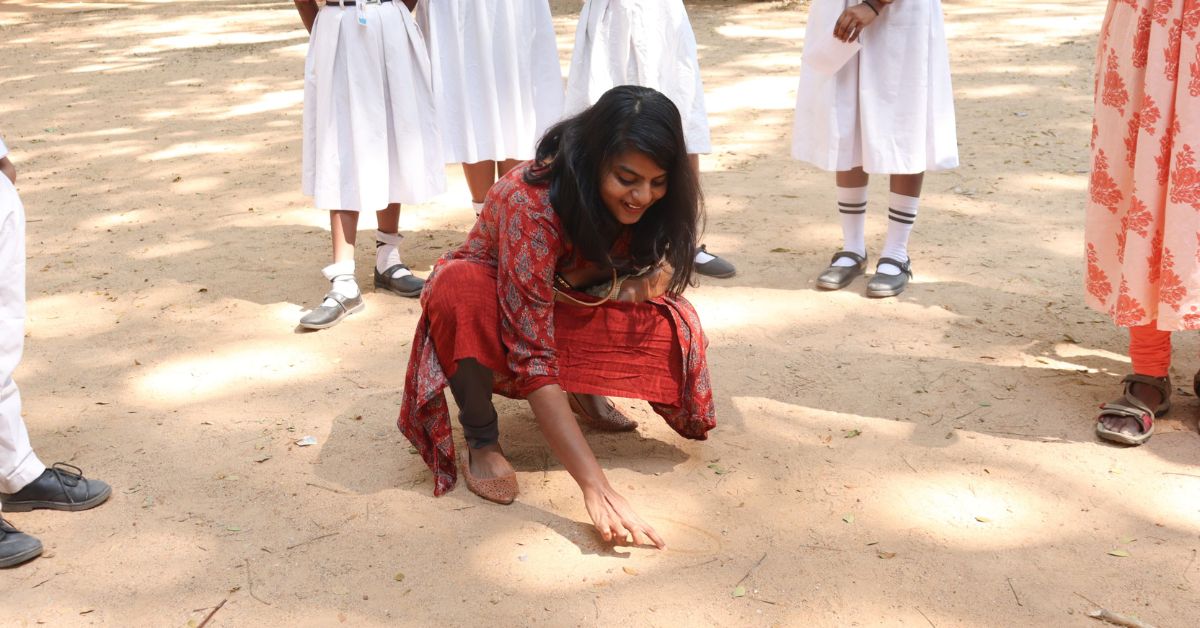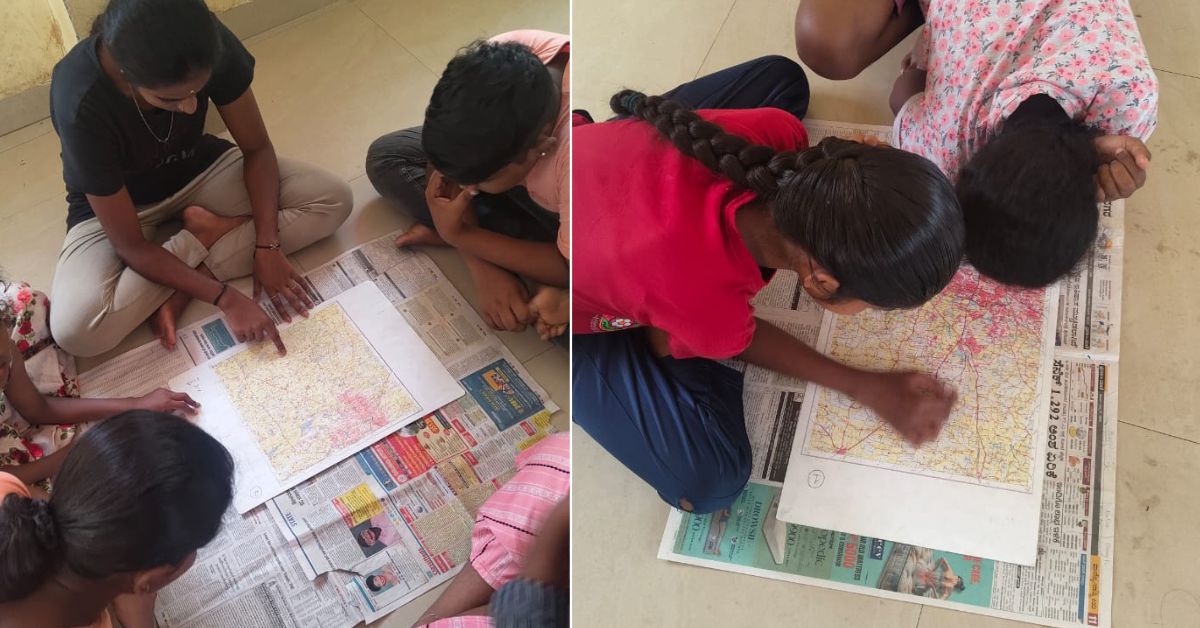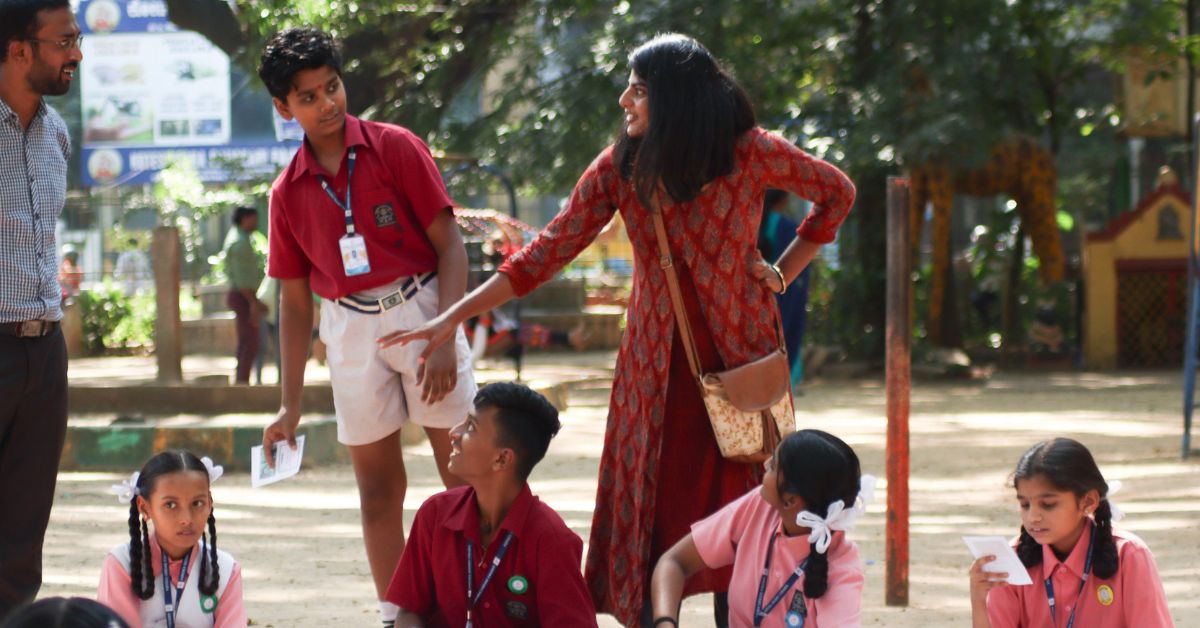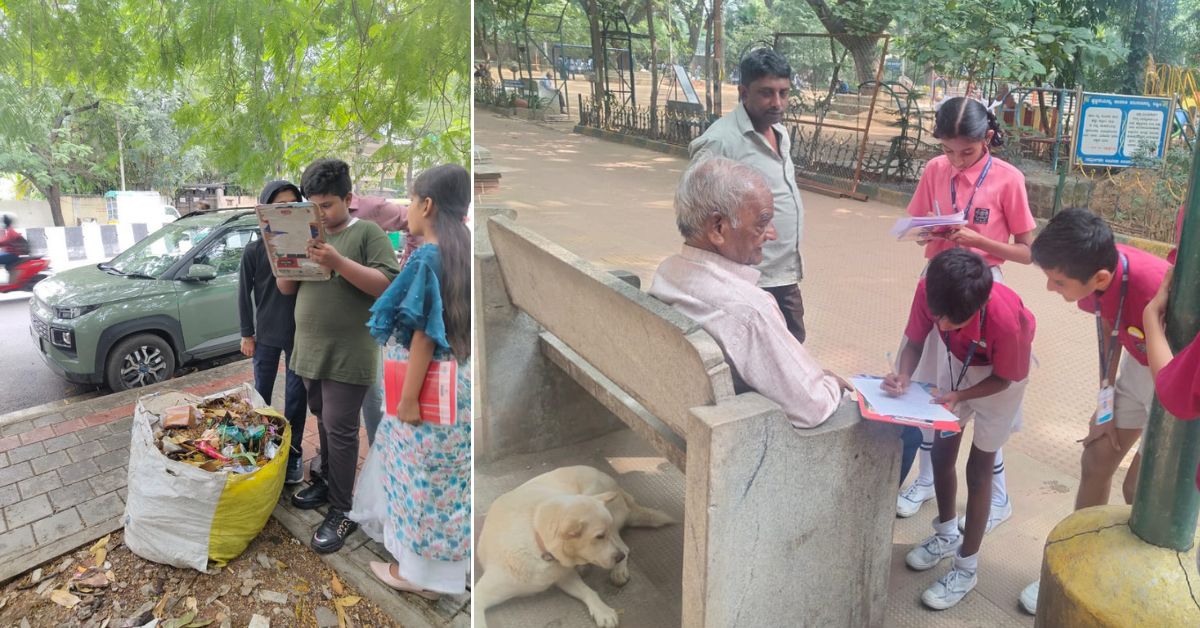India Education News | Education Reformers of India
Saidevi Sanjeeviraja grew up with nature as her constant companion in the Eastern Ghats in Tamil Nadu. Growing up near the Grizzled Squirrel Wildlife Sanctuary, she was surrounded by peacocks and an endangered species of squirrel. Weekends often involved bird watching both on and off school grounds. This setting offered her abundant unstructured time in nature.
“Since my mother worked as the principal of my school, I had the freedom during summer holidays to roam around 20 acres of land, often in solitude. Such an environment nurtured my curiosity — I spent hours observing ant lions constructing tiny trap holes or watched tailor birds adeptly weaving cobwebs between leaves to create their homes,” she recalls in a conversation with The Better India.
She would often find herself drawn back into the lap of nature even after her academic journey in finance and international business.
Reflecting back on those formative years, she realised that moving to Bengaluru as an adult had created a huge gap in how children interacted with nature.
“While the city boasts a wealth of green spaces, with parks and lakes within a couple of kilometres from nearly every home, there’s a noticeable gap in how children can interact with nature,” she says.
“Unlike the unstructured freedom I enjoyed, children in Bengaluru experience more regimented interactions with nature, limited to brief, controlled visits to parks. They’re often directed by adults and bound by many restrictions, like not being allowed to run or sit in certain areas,” she adds.

Unlike her own childhood, where hours could be spent observing the intricate behaviour of ants or the architectural abilities of tailor birds, the urban children had very little unstructured playtime in natural environments.
Realising that structured and limited park visits were causing children to miss out on the same experiences that had shaped her, Saidevi decided to create’ Thicket Tales’. This organisation aims to bridge the gap between children and nature in cities by making learning an interesting adventure.
“I wanted to create a natural immersive experience for children where they could explore like how I explored, so that they’re independent amidst nature,” she adds.
Bringing nature into education
With Thicket Tales, Saidevi introduces middle school students, particularly those from low-income families, to the wonders of nature through hands-on experiences like nature walks, storytelling, and environmental projects.
She has been transforming the way science and social science are taught by integrating them with nature.

The organisation operates across approximately 100 schools and parks in Bengaluru, providing an 80-minute weekly session that allows children to learn by interacting with the environment. Each session aims to foster curiosity and encourage children to discover and learn through self-directed exploration.
Initially met with skepticism, Saidevi’s approach has gradually gained acceptance as its impact has become evident through videos and tangible outcomes.
The organisation consists of a talented team, including a trained biologist, a science communicator, and an academic director – all working together to make ecological education accessible and immersive.
The power of Thicket Tales lies in its simplicity and impact. As children explore the parks around Bengaluru, they engage in activities that challenge their cognitive and sensory skills.
“These walks are filled with opportunities for spontaneous learning — children might identify a bird species by their calls or understand pollination by watching bees at work. This hands-on approach goes beyond bookish knowledge. It deeply instills an appreciation for and understanding of nature,” she shares.
“For children in low-income settings, these experiences become even more profound. Often lacking access to extracurricular activities, these nature walks offer them a new world to explore and enjoy,” she adds.
Saidevi notes how through activities like scavenger hunts or storytelling under trees, the children develop critical thinking skills and gain empathy towards all living creatures.

One particular event stands out in illustrating the transformative potential of Saidevi’s programs. A group of students worked on identifying different species of butterflies over a series of sessions. They were given cameras to document their findings and shared their observations with enthusiasm.
“One student, who initially showed little interest, grew fascinated by a common Mormon butterfly he captured. His newfound interest propelled him to learn more about butterflies, leading him to present his findings to his peers and parents with confidence,” she adds.
Another story is of how, during a discussion on climate change, a student realised the importance of the city’s green cover. Using maps from 1973 and 2011, students were able to draw poignant connections between dwindling green spaces and rising urban temperatures.
“This exercise not only bolstered their geographic skills but also instilled a sense of responsibility to advocate for greener practices in their community,” she shares proudly.
Building a future of eco-conscious citizens
Through these immersive programmes, children are not just passive learners but active participants and changemakers. They are taught to identify environmental issues within their communities and encouraged to devise solutions. Whether it’s a litter problem in a park or lack of green spaces, these young minds are empowered to think critically and compassionately.
Sonia, a class 8 student at Ashoka Shishu Vihara school of Bengaluru, shares with enthusiasm the essence of her learning journey. “I love these nature classes,” she began, her words imbued with warmth.

“The most beautiful part of this journey is experiencing it all with my friends. My school gave me the wonderful opportunity to learn about nature, what leads to climate change, and the animals that inhabit our world,” she adds.
She paused, reflecting on the knowledge she cherished. “I’ve even learned about different types of snakes, plants, and animals. It’s fascinating to discover all these things together with friends.”
With a twinkle in her eye, she continues, “Saidevi aka (sister) doesn’t just teach us from books. She shows us real-life examples, like pictures on TV and samples of leaves and flowers. It’s amazing! When we visit parks, she explains everything we see, and now I can even identify some of the trees and birds around my home and in the parks.”
Sonia’s passion was evident, her words painting a picture of a nurturing and inspiring educational experience that had truly ignited her love for the natural world.
Saidevi’s vision is to cultivate a generation that is not only informed about the environment but also involved in its preservation. Thicket Tales is more than just a nature walk — it is a movement towards rethinking how education can incorporate real-world issues, fostering a generation that deeply respects their natural world.
“Recognising the success of these programs, local government bodies like BBMP (Bruhat Bengaluru Mahanagara Palike) have shown interest in incorporating our methods into their school curriculums. There is hope that such initiatives will expand, create ripples of change across more schools,” she adds.
By rekindling a child’s innate curiosity and love for nature, she is not only enriching lives but also cultivating a more conscientious and sustainable future for Bengaluru and beyond. Through nature, these children learn the interconnectedness of life – a lesson that lasts a lifetime.
Edited by Vidya Gowri; All images courtesy: Thicket Tales.
Source link
Shivani Gupta
#Bengaluru #Woman #Turns #Nature #Classroom #Kids #Learn #Snakes #Plants #Climate #Change